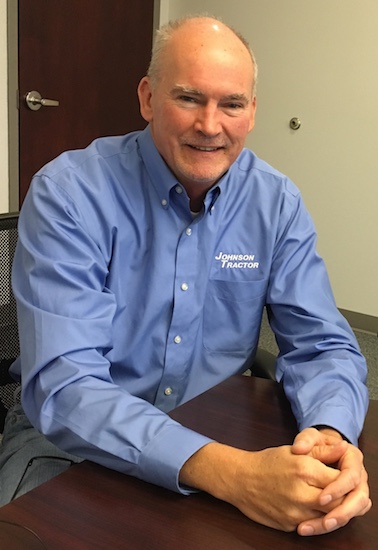I was in a Ferrari plant in Italy with a small group of Case IH dealers several years ago. It was surgery room clean, super well lit, plants and trees interspersed between work stations, and every employee was spotless. Compare that to the normal Ford or Chevy plant, or even the Case IH plant in Racine, and that’s one difference we’ll see between the new 2030 dealership and today’s dealership. I view today’s dealerships vs. 2030 dealerships like I view the differences between the Racine plant and the Ferrari plant. What works well for employees and customers now probably won’t meet their expectations in 2030.
- If a dealer thinks he/she is spending a lot on employee training now, hold your hat. Double or triple the percent of time and cost that we’ll pay in the future for employee training. Training will involve less bolts and nuts. More electronic, less repair and more diagnosis. Less reaction and more forecast.
- Right now, there is an extremely high cost to start up a large-scale production ag dealership. And I’m talking about only 1 store, let alone a complex of 5 or more. The high risk and slim margins are usually enough to scare off most outside investors. I believe there will be fewer of us, and that we won’t just wake up in 2030 and transform our ma and pa stores into a dealership of the future. It takes continuous investment in facilities, processes and of course people.
- There won’t be any cubicles. Employees, especially sales, management, accounting and HR will have offices or work at home. The millennials are too cheap to own a house big enough for a home office, so the office will probably be at the dealership. There will be better technology for cleaner air in each office or work area. Just like the housing crash and the financial crash, the government will place a whole new set of criteria for inside air quality and cleanliness as a result of the pandemic. Other features such as self-opening doors will be the new norm.
- We won’t spend thousands of dollars on hard wiring for computer terminals and phones. Wireless video conferencing for training, sales calls, management meetings, etc. will be the norm. Nice big conference rooms built in the prior decades will be used for storage.
- Service department requirements will continue to evolve. Just as we rarely work on gas engines anymore, there will probably be a phase out of diesel engines, however this will be a long, slow death. It will take a radical government policy that outlaws diesel engines for any meaningful change in the next decade. The environment will likely lose out to the economy the next few years, so change will be slow.
- Service department new builds will be tech driven. They’ll feature more comfort, more convenience, safer, more productivity with less people. Same as offices, better air quality management.
- For all departments: regulations and codes will continue to raise barriers for new facilities so those that do go up will be done by organizations that are financially strong and can show a strong ROI on a new building price tag. This will be another breaking point for getting big or getting out.
There is plenty more to write about concerning types of parts sold, use or nonuse of bulk oil. Water usage and how it’s handled will be a huge issue for some parts of the country. Will we steam clean used or demoed equipment in the future, and if we do, how much water will be allowed and where will the residue go?
The store we are building now is not much different than our Janesville build 7 years ago. We are placing more emphasis on service tech comfort, convenience and safety. We are social distancing our parts counters better. We will spend more on merchandising our Kubota products inside.
I remember someone 20 years ago predicting that most of our dealership service would be done on the farm or in the field in the future. Yet our service shops have never been busier, and the new store we are building will double our existing service space in Rochelle, Ill. As long as manufacturers continue to market through a dealership network, there will be a need for good facilities — bigger, better, more customer and employee focused.
How Will Ag Do Business in 2030?
Defining Dealer-Customer Relationships of the Future with Dollars & Sense
Dare to Dream: How Might Dealer Facilities Evolve by 2030
How to Innovate Your Dealership Through a Changing Market
Young Growers Expect High Levels of Customer Service from Dealers






